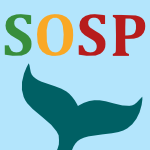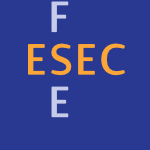63 papers:
 RecSys-2015-AharonAADGS #named #recommendation
RecSys-2015-AharonAADGS #named #recommendation- ExcUseMe: Asking Users to Help in Item Cold-Start Recommendations (MA, OA, NAE, DDC, SG, OS), pp. 83–90.
 ESEC-FSE-2015-SmithJMCL #developer #security #static analysis
ESEC-FSE-2015-SmithJMCL #developer #security #static analysis- Questions developers ask while diagnosing potential security vulnerabilities with static analysis (JS, BJ, ERMH, BC, HRL), pp. 248–259.
 HT-2014-YangHBH #collaboration
HT-2014-YangHBH #collaboration- Asking the right question in collaborative q&a systems (JY, CH, AB, GJH), pp. 179–189.
 MSR-2014-BajajPM #developer #mining #web
MSR-2014-BajajPM #developer #mining #web- Mining questions asked by web developers (KB, KP, AM), pp. 112–121.
 CHI-2014-Gilbert #performance #social #what
CHI-2014-Gilbert #performance #social #what- What if we ask a different question?: social inferences create product ratings faster (EG), pp. 2759–2762.
 CHI-2014-ShayIRC #case study #experience #quote #why
CHI-2014-ShayIRC #case study #experience #quote #why- “My religious aunt asked why i was trying to sell her viagra”: experiences with account hijacking (RS, II, RWR, SC), pp. 2657–2666.
 CSCW-2014-ForteDMA #network #online #social #student #what
CSCW-2014-ForteDMA #network #online #social #student #what- What do teens ask their online social networks?: social search practices among high school students (AF, MD, RMM, DEA), pp. 28–37.
 CSCW-2014-Oeldorf-HirschHMTG #network #social
CSCW-2014-Oeldorf-HirschHMTG #network #social- To search or to ask: the routing of information needs between traditional search engines and social networks (AOH, BH, MRM, JT, DG), pp. 16–27.
 CSCW-2014-QuinnB #named #performance #spreadsheet
CSCW-2014-QuinnB #named #performance #spreadsheet- AskSheet: efficient human computation for decision making with spreadsheets (AJQ, BBB), pp. 1456–1466.
 PLATEAU-2014-KubelkaBR #programming #smalltalk
PLATEAU-2014-KubelkaBR #programming #smalltalk- Asking and Answering Questions during a Programming Change Task in Pharo Language (JK, AB, RR), pp. 1–11.
 ICST-2014-MoonKKY #fault #locality #source code
ICST-2014-MoonKKY #fault #locality #source code- Ask the Mutants: Mutating Faulty Programs for Fault Localization (SM, YK, MK, SY), pp. 153–162.
 SAT-2014-BalyoFHB #set
SAT-2014-BalyoFHB #set- Everything You Always Wanted to Know about Blocked Sets (But Were Afraid to Ask) (TB, AF, MH, AB), pp. 317–332.
 MSR-2013-StevensGFDC #android
MSR-2013-StevensGFDC #android- Asking for (and about) permissions used by Android apps (RS, JG, VF, PTD, HC), pp. 31–40.
 CSCW-2013-BradyZMB #network #social
CSCW-2013-BradyZMB #network #social- Investigating the appropriateness of social network question asking as a resource for blind users (ELB, YZ, MRM, JPB), pp. 1225–1236.
 CSCW-2013-GrayEVL #facebook
CSCW-2013-GrayEVL #facebook- Who wants to know?: question-asking and answering practices among facebook users (RG, NBE, JV, CL), pp. 1213–1224.
 SOSP-2013-DavidGT
SOSP-2013-DavidGT- Everything you always wanted to know about synchronization but were afraid to ask (TD, RG, VT), pp. 33–48.
 VLDB-2012-CaoSTC
VLDB-2012-CaoSTC- Whom to Ask? Jury Selection for Decision Making Tasks on Micro-blog Services (CCC, JS, YT, LC), pp. 1495–1506.
 CHI-2012-YaroshMZ #enterprise
CHI-2012-YaroshMZ #enterprise- Asking the right person: supporting expertise selection in the enterprise (SY, TM, MXZ), pp. 2247–2256.
 CSCW-2012-NicholsK #network #social
CSCW-2012-NicholsK #network #social- Asking questions of targeted strangers on social networks (JN, JHK), pp. 999–1002.
 CSCW-2012-WashL #power of #social #social media
CSCW-2012-WashL #power of #social #social media- The power of the ask in social media (RW, CL), pp. 1187–1190.
 ICSE-2012-Duala-EkokoR #api #case study
ICSE-2012-Duala-EkokoR #api #case study- Asking and answering questions about unfamiliar APIs: An exploratory study (EDE, MPR), pp. 266–276.
 VLDB-2011-ParameswaranSGPW #graph
VLDB-2011-ParameswaranSGPW #graph- Human-assisted graph search: it’s okay to ask questions (AGP, ADS, HGM, NP, JW), pp. 267–278.
 SCAM-2011-SfayhiS #analysis #interactive #visualisation #what
SCAM-2011-SfayhiS #analysis #interactive #visualisation #what- What You See is What You Asked for: An Effort-Based Transformation of Code Analysis Tasks into Interactive Visualization Scenarios (AS, HAS), pp. 195–203.
 ICEIS-v3-2011-WangWWL #modelling #using #workflow
ICEIS-v3-2011-WangWWL #modelling #using #workflow- Formally Modeling and Analyzing Data-centric Workflow using WFCP-net and ASK-CTL (ZW, JW, LW, GL), pp. 139–144.
 CIKM-2011-Pasca #query #using #web #what
CIKM-2011-Pasca #query #using #web #what- Asking what no one has asked before: using phrase similarities to generate synthetic web search queries (MP), pp. 1347–1352.
 ECIR-2011-HefnyDA #exclamation #query
ECIR-2011-HefnyDA #exclamation #query- Is a Query Worth Translating: Ask the Users! (AH, KD, AA), pp. 238–250.
 KDD-2011-RashidiC #induction #learning #query
KDD-2011-RashidiC #induction #learning #query- Ask me better questions: active learning queries based on rule induction (PR, DJC), pp. 904–912.
 ICSE-2011-TreudeBS #how #question #web
ICSE-2011-TreudeBS #how #question #web- How do programmers ask and answer questions on the web? (CT, OB, MADS), pp. 804–807.
 CHI-2010-MorrisTP #behaviour #bibliography #network #people #social #what #why
CHI-2010-MorrisTP #behaviour #bibliography #network #people #social #what #why- What do people ask their social networks, and why?: a survey study of status message q&a behavior (MRM, JT, KP), pp. 1739–1748.
 RE-2010-RyanMG
RE-2010-RyanMG- If You Want Innovative RE, Never Ask the Users; A Formal Debate (KR, NAMM, MG), p. 388.
 ICSE-2010-FritzM #developer #using
ICSE-2010-FritzM #developer #using- Using information fragments to answer the questions developers ask (TF, GCM), pp. 175–184.
 ICSE-2010-LaTozaM #developer #reachability
ICSE-2010-LaTozaM #developer #reachability- Developers ask reachability questions (TDL, BAM), pp. 185–194.
 DAC-2009-PatilLZWM #logic #using
DAC-2009-PatilLZWM #logic #using- Digital VLSI logic technology using Carbon Nanotube FETs: frequently asked questions (NP, AL, JZ, HSPW, SM), pp. 304–309.
 HCI-AUII-2009-BekiarisKMP #concept #paradigm #smarttech
HCI-AUII-2009-BekiarisKMP #concept #paradigm #smarttech- An Interoperable Concept for Controlling Smart Homes — The ASK-IT Paradigm (EB, KK, AM, MP), pp. 377–386.
 ICSE-2008-KoM #behaviour #debugging #why
ICSE-2008-KoM #behaviour #debugging #why- Debugging reinvented: asking and answering why and why not questions about program behavior (AJK, BAM), pp. 301–310.
 IFL-2007-BrasselS #debugging #functional #lazy evaluation #source code
IFL-2007-BrasselS #debugging #functional #lazy evaluation #source code- Debugging Lazy Functional Programs by Asking the Oracle (BB, HS), pp. 183–200.
 ILC-2007-WozniakDW #abstraction #data type #policy
ILC-2007-WozniakDW #abstraction #data type #policy- Dynamic ADTs: a “don’t ask, don’t tell” policy for data abstraction (GW, MD, SW), p. 26.
 SIGIR-2007-RaghavanA #algorithm #feedback #interactive
SIGIR-2007-RaghavanA #algorithm #feedback #interactive- An interactive algorithm for asking and incorporating feature feedback into support vector machines (HR, JA), pp. 79–86.
 PODS-2006-GoelGM #modelling #optimisation #using
PODS-2006-GoelGM #modelling #optimisation #using- Asking the right questions: model-driven optimization using probes (AG, SG, KM), pp. 203–212.
 FSE-2006-SillitoMV #evolution
FSE-2006-SillitoMV #evolution- Questions programmers ask during software evolution tasks (JS, GCM, KDV), pp. 23–34.
 ICSE-2006-Ko #debugging
ICSE-2006-Ko #debugging- Debugging by asking questions about program output (AJK), pp. 989–992.
 ITiCSE-2005-XinogalosS #concept #object-oriented #process #student #using
ITiCSE-2005-XinogalosS #concept #object-oriented #process #student #using- Using hands-on activities for motivating students with OOP concepts before they are asked to implement them (SX, MS), p. 380.
 CIKM-2005-JijkounR #web
CIKM-2005-JijkounR #web- Retrieving answers from frequently asked questions pages on the web (VJ, MdR), pp. 76–83.
 ICSE-2005-MaurerM #agile #what
ICSE-2005-MaurerM #agile #what- What you always wanted to know about agile methods but did not dare to ask (FM, GM), pp. 731–732.
 CHI-2004-KoM #behaviour #debugging #design #interface
CHI-2004-KoM #behaviour #debugging #design #interface- Designing the whyline: a debugging interface for asking questions about program behavior (AJK, BAM), pp. 151–158.
 KR-2004-CalvaneseGLLR #query #what
KR-2004-CalvaneseGLLR #query #what- What to Ask to a Peer: Ontolgoy-based Query Reformulation (DC, GDG, DL, ML, RR), pp. 469–478.
 ICLP-2004-DuckBS #compilation #constraints
ICLP-2004-DuckBS #compilation #constraints- Compiling Ask Constraints (GJD, MJGdlB, PJS), pp. 105–119.
 IWPC-2003-Zeller
IWPC-2003-Zeller- Isolating Cause-Effect Chains with AskIgo (AZ), pp. 296–297.
 CSCW-2002-RibakJS #community #quote
CSCW-2002-RibakJS #community #quote- “Ask before you search”: peer support and community building with reachout (AR, MJ, VS), pp. 126–135.
 SEKE-2002-VanT #collaboration #education #evaluation #named #process
SEKE-2002-VanT #collaboration #education #evaluation #named #process- FAQshare: a frequently asked questions voting system as a collaboration and evaluation tool in teaching activities (HLV, AT), pp. 557–560.
 SIGIR-2002-YuanBK
SIGIR-2002-YuanBK- The relationship between ASK and relevance criteria (XJY, NJB, JYK), pp. 359–360.
 ITiCSE-2001-VanT #evaluation #optimisation #student
ITiCSE-2001-VanT #evaluation #optimisation #student- A “frequently asked questions” management system that supports voting, built for student evaluation and optimization purposes (HLV, AT), p. 184.
 RE-2001-Kurtz #estimation
RE-2001-Kurtz #estimation- Ask Pete, Software Planning and Estimation through Project Characterization (TK), p. 286.
 HCI-EI-1999-Cierjacks #question
HCI-EI-1999-Cierjacks #question- Acquiring Tasks: A Better Way Than Asking? (MC), pp. 1194–1198.
 ITiCSE-1998-MeadHBRBS #education #re-engineering
ITiCSE-1998-MeadHBRBS #education #re-engineering- Everything you ever wanted to know about software engineering education, but were afraid to ask (panel) (NRM, TBH, DJB, MR, OB, FLVS), pp. 260–263.
 HCI-SEC-1997-BlanchonF #what
HCI-SEC-1997-BlanchonF #what- Asking Users About What They Mean: Two Experiments & Results (HB, LF), pp. 609–612.
 KR-1996-BorgidaM #query
KR-1996-BorgidaM #query- Asking Queries about Frames (AB, DLM), pp. 340–349.
 PODS-1995-Papadimitriou #database #query
PODS-1995-Papadimitriou #database #query- Database Metatheory: Asking the Big Queries (CHP), pp. 1–10.
 KR-1992-Lakemeyer
KR-1992-Lakemeyer- All You Ever Wanted to Know about Tweety (But Were Afraid to Ask) (GL), pp. 639–648.
 KR-1992-NejdlB #query #semantics
KR-1992-NejdlB #query #semantics- Asking About Possibilities — Revision and Update Semantics for Subjunctive Queries (WN, MB), pp. 697–708.
 CHI-1991-SebrechtsS
CHI-1991-SebrechtsS- Question asking as a tool for novice computer skill acquisition (MMS, MLS), pp. 293–299.
 ESEC-1989-Thomas #state of the art
ESEC-1989-Thomas #state of the art- Asking for the Impossible: The State of the Art in Safety-Related Systems (MT), pp. 42–47.
 ML-1988-KrawchukW #on the
ML-1988-KrawchukW #on the- On Asking the Right Questions (BJK, IHW), pp. 15–21.
 RecSys-2015-AharonAADGS #named #recommendation
RecSys-2015-AharonAADGS #named #recommendation ESEC-FSE-2015-SmithJMCL #developer #security #static analysis
ESEC-FSE-2015-SmithJMCL #developer #security #static analysis HT-2014-YangHBH #collaboration
HT-2014-YangHBH #collaboration MSR-2014-BajajPM #developer #mining #web
MSR-2014-BajajPM #developer #mining #web CHI-2014-Gilbert #performance #social #what
CHI-2014-Gilbert #performance #social #what CHI-2014-ShayIRC #case study #experience #quote #why
CHI-2014-ShayIRC #case study #experience #quote #why CSCW-2014-ForteDMA #network #online #social #student #what
CSCW-2014-ForteDMA #network #online #social #student #what CSCW-2014-Oeldorf-HirschHMTG #network #social
CSCW-2014-Oeldorf-HirschHMTG #network #social CSCW-2014-QuinnB #named #performance #spreadsheet
CSCW-2014-QuinnB #named #performance #spreadsheet PLATEAU-2014-KubelkaBR #programming #smalltalk
PLATEAU-2014-KubelkaBR #programming #smalltalk ICST-2014-MoonKKY #fault #locality #source code
ICST-2014-MoonKKY #fault #locality #source code SAT-2014-BalyoFHB #set
SAT-2014-BalyoFHB #set MSR-2013-StevensGFDC #android
MSR-2013-StevensGFDC #android CSCW-2013-BradyZMB #network #social
CSCW-2013-BradyZMB #network #social CSCW-2013-GrayEVL #facebook
CSCW-2013-GrayEVL #facebook SOSP-2013-DavidGT
SOSP-2013-DavidGT VLDB-2012-CaoSTC
VLDB-2012-CaoSTC CHI-2012-YaroshMZ #enterprise
CHI-2012-YaroshMZ #enterprise CSCW-2012-NicholsK #network #social
CSCW-2012-NicholsK #network #social CSCW-2012-WashL #power of #social #social media
CSCW-2012-WashL #power of #social #social media ICSE-2012-Duala-EkokoR #api #case study
ICSE-2012-Duala-EkokoR #api #case study VLDB-2011-ParameswaranSGPW #graph
VLDB-2011-ParameswaranSGPW #graph SCAM-2011-SfayhiS #analysis #interactive #visualisation #what
SCAM-2011-SfayhiS #analysis #interactive #visualisation #what ICEIS-v3-2011-WangWWL #modelling #using #workflow
ICEIS-v3-2011-WangWWL #modelling #using #workflow CIKM-2011-Pasca #query #using #web #what
CIKM-2011-Pasca #query #using #web #what ECIR-2011-HefnyDA #exclamation #query
ECIR-2011-HefnyDA #exclamation #query KDD-2011-RashidiC #induction #learning #query
KDD-2011-RashidiC #induction #learning #query ICSE-2011-TreudeBS #how #question #web
ICSE-2011-TreudeBS #how #question #web CHI-2010-MorrisTP #behaviour #bibliography #network #people #social #what #why
CHI-2010-MorrisTP #behaviour #bibliography #network #people #social #what #why RE-2010-RyanMG
RE-2010-RyanMG ICSE-2010-FritzM #developer #using
ICSE-2010-FritzM #developer #using ICSE-2010-LaTozaM #developer #reachability
ICSE-2010-LaTozaM #developer #reachability DAC-2009-PatilLZWM #logic #using
DAC-2009-PatilLZWM #logic #using HCI-AUII-2009-BekiarisKMP #concept #paradigm #smarttech
HCI-AUII-2009-BekiarisKMP #concept #paradigm #smarttech ICSE-2008-KoM #behaviour #debugging #why
ICSE-2008-KoM #behaviour #debugging #why IFL-2007-BrasselS #debugging #functional #lazy evaluation #source code
IFL-2007-BrasselS #debugging #functional #lazy evaluation #source code ILC-2007-WozniakDW #abstraction #data type #policy
ILC-2007-WozniakDW #abstraction #data type #policy SIGIR-2007-RaghavanA #algorithm #feedback #interactive
SIGIR-2007-RaghavanA #algorithm #feedback #interactive PODS-2006-GoelGM #modelling #optimisation #using
PODS-2006-GoelGM #modelling #optimisation #using FSE-2006-SillitoMV #evolution
FSE-2006-SillitoMV #evolution ICSE-2006-Ko #debugging
ICSE-2006-Ko #debugging ITiCSE-2005-XinogalosS #concept #object-oriented #process #student #using
ITiCSE-2005-XinogalosS #concept #object-oriented #process #student #using CIKM-2005-JijkounR #web
CIKM-2005-JijkounR #web ICSE-2005-MaurerM #agile #what
ICSE-2005-MaurerM #agile #what CHI-2004-KoM #behaviour #debugging #design #interface
CHI-2004-KoM #behaviour #debugging #design #interface KR-2004-CalvaneseGLLR #query #what
KR-2004-CalvaneseGLLR #query #what ICLP-2004-DuckBS #compilation #constraints
ICLP-2004-DuckBS #compilation #constraints IWPC-2003-Zeller
IWPC-2003-Zeller CSCW-2002-RibakJS #community #quote
CSCW-2002-RibakJS #community #quote SEKE-2002-VanT #collaboration #education #evaluation #named #process
SEKE-2002-VanT #collaboration #education #evaluation #named #process SIGIR-2002-YuanBK
SIGIR-2002-YuanBK ITiCSE-2001-VanT #evaluation #optimisation #student
ITiCSE-2001-VanT #evaluation #optimisation #student RE-2001-Kurtz #estimation
RE-2001-Kurtz #estimation HCI-EI-1999-Cierjacks #question
HCI-EI-1999-Cierjacks #question ITiCSE-1998-MeadHBRBS #education #re-engineering
ITiCSE-1998-MeadHBRBS #education #re-engineering HCI-SEC-1997-BlanchonF #what
HCI-SEC-1997-BlanchonF #what KR-1996-BorgidaM #query
KR-1996-BorgidaM #query PODS-1995-Papadimitriou #database #query
PODS-1995-Papadimitriou #database #query KR-1992-Lakemeyer
KR-1992-Lakemeyer KR-1992-NejdlB #query #semantics
KR-1992-NejdlB #query #semantics CHI-1991-SebrechtsS
CHI-1991-SebrechtsS ESEC-1989-Thomas #state of the art
ESEC-1989-Thomas #state of the art ML-1988-KrawchukW #on the
ML-1988-KrawchukW #on the









